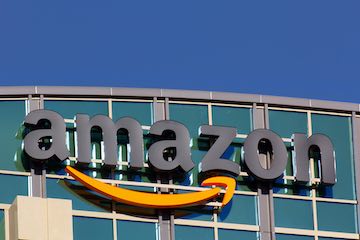
In its 10-Q, Amazon said the operating loss for North America — 2 million in Q2 2022 — was primarily due to increased shipping, fulfillment, and transportation costs; high wage rates and incentives; and fulfillment network inefficiencies. The same factors applied to its international unit’s .8 billion operating loss.
While product sales fell, service revenue increased by 17.4%, from .1 billion in Q2 2021 to .7 billion in Q2 this year — primarily from Amazon Web Services.
Financial Results
Subscription sales, including Amazon Prime, rose 10% to .7 billion. Seller services revenue rose 9.1% to .4 billion, and advertising sales rose 17.5% to .8 billion in year-over-year results. Third-party sellers accounted for 57% of all items sold on Amazon in the quarter, the highest percentage ever, according to Chief Financial Officer Brian Olsavsky during the earnings call. Operating expenses grew 12% year-over-year, from 5.3 billion in Q2 2021 to 8 billion this year. Operating income decreased 57% to .3 billion this year, compared with .7 billion in Q2 2021.
In the earnings call, Amazon staff stated that over half of capital investment for the entire 2022 year would focus on technology infrastructure for AWS.
In the call, Amazon staff projected Q3 2022 net sales to range from 5 billion to 0 billion, an increase of 13% to 17% over Q3 2021. Operating income will range from Amazon reported sluggish sales and a net loss for the second straight quarter. Nevertheless, Q2 revenue exceeded analysts’ expectations, coming in at 1.2 billion versus the expected 9.5 billion. Revenue for Q2 2021 was 3.1 billion.
Nonetheless, North American ecommerce sales increased 10.2% year-over-year from .6 billion in Q2 2021 to .4 billion this year, while international sales fell about 12% from .7 billion to .7 billion. Much of the global reduction was due to foreign exchange rates.
Amazon Web Services was the star this quarter, counterbalancing sluggish growth in ecommerce. Year-over-year quarterly net sales grew 33% from .8 billion in Q2 2021 to .7 billion in 2022. Operating income from AWS increased 36% year-over-year from .2 billion in Q2 2021 to .7 billion this year. During the 2022 second quarter, AWS announced new customer agreements with Delta Airlines and British Telecom, among other enterprises.
Amazon has strengths that Shopify lacks. Amazon is much bigger than Shopify and can better cope with quarterly losses. Amazon’s Q2 2022 revenue was 1.2 billion, while Shopify’s was .3 billion. Amazon’s market cap is .4 trillion, roughly 3.3 times larger than Shopify’s .2 billion. Amazon predicted better results for the balance of 2022, while Shopify anticipated continuing losses.
Amazon Web Services
Sixty-two percent of Amazon’s overall product sales were in North America, an increase of 2% over the same period last year. Amazon Web Services contributed 22% of total revenue, an increase from 13% in Q2 2021.
Furthermore, Amazon is diversified with services such as AWS, while Shopify relies entirely on ecommerce. Moreover, Amazon is pursuing healthcare initiatives. In July, the company announced plans to buy One Medical, a primary care provider with nearly 200 U.S. locations. Additionally, through Amazon Care, the company offers virtual consultations with doctors.
Third Quarter Guidance
The company acknowledged inflation-induced cost pressures, especially in the supply chain. Additionally, Prime Day was in the second quarter in 2021 but in the third quarter this year, negating a Q2 sales boost.
Shopify and Amazon
The Q2 2022 net loss was .0 billion, compared with net income of .8 billion in Q2 2021. The net loss includes a pre-tax non-operating write-down of .9 billion from the company’s investment in electric carmaker Rivian.
I reported last week on Shopify’s poor second-quarter performance, and I’ve been following Wall Street analysts’ responses to the two companies. While both suffered losses, analysts had a much more bullish response to Amazon. The market agreed, with Amazon’s stock price rising 12% in after-hours trading the day the company announced its results. Shopify’s stock price tumbled amidst analyst criticism, although it has since recovered. Amazon’s financial results for the quarter ended June 30 were affected by the slowdown in online consumer purchasing, like many other ecommerce retailers and platforms.





